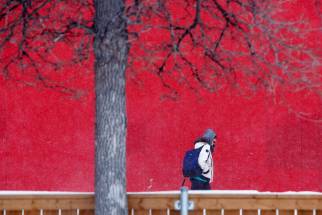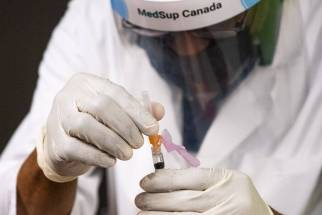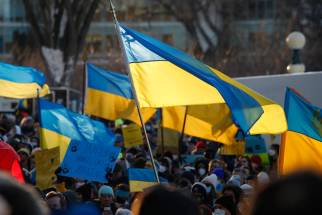Isolation rule on way out in Manitoba Doctors say March 15 too soon to drop requirement
Read this article for free:
or
Already have an account? Log in here »
To continue reading, please subscribe:
Monthly Digital Subscription
$0 for the first 4 weeks*
- Enjoy unlimited reading on winnipegfreepress.com
- Read the E-Edition, our digital replica newspaper
- Access News Break, our award-winning app
- Play interactive puzzles
*No charge for 4 weeks then price increases to the regular rate of $19.00 plus GST every four weeks. Offer available to new and qualified returning subscribers only. Cancel any time.
Monthly Digital Subscription
$4.75/week*
- Enjoy unlimited reading on winnipegfreepress.com
- Read the E-Edition, our digital replica newspaper
- Access News Break, our award-winning app
- Play interactive puzzles
*Billed as $19 plus GST every four weeks. Cancel any time.
To continue reading, please subscribe:
Add Free Press access to your Brandon Sun subscription for only an additional
$1 for the first 4 weeks*
*Your next subscription payment will increase by $1.00 and you will be charged $16.99 plus GST for four weeks. After four weeks, your payment will increase to $23.99 plus GST every four weeks.
Read unlimited articles for free today:
or
Already have an account? Log in here »
Hey there, time traveller!
This article was published 02/03/2022 (1377 days ago), so information in it may no longer be current.
Manitobans who test positive for COVID-19 will no longer be legally required to isolate, as the province takes another step in returning the province to a “new normal.”
Public-health restrictions for indoor mask use will also disappear on March 15, deputy chief provincial public health officer Dr. Jazz Atwal announced Wednesday.
Rather than requiring COVID-positive Manitobans to stay home, public health will only recommend they do so.
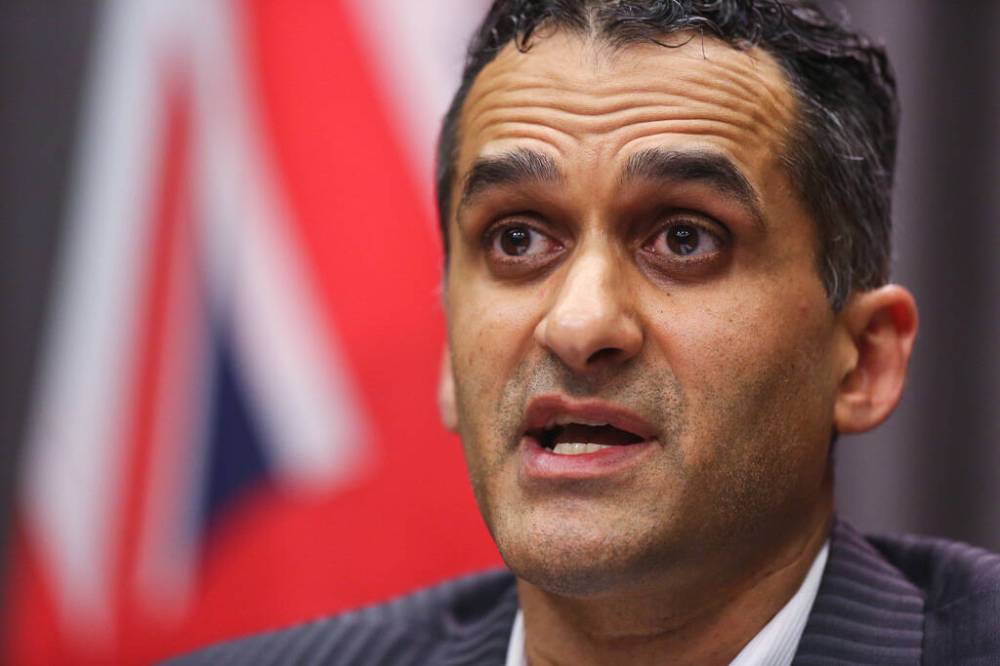
The change is because the province is “moving to (the) endemic stage” of its COVID-19 response, Atwal said.
He said isolation orders are not in place for other types of infections, and we need to “learn to live with” COVID-19.
“It’s going to continue to be a part of our lives,” Atwal said. But he said public-health messaging will stay the same: stay home when sick.
“You shouldn’t be out coughing in different locations. If you’re sick, you should stay at home, regardless of what is causing that illness, until you recover from that illness,” Atwal said.
“You shouldn’t be out coughing in different locations. If you’re sick, you should stay at home, regardless of what is causing that illness, until you recover from that illness.”
– Dr. Jazz Atwal
Current self-isolation rules require fully vaccinated Manitobans to stay home for five days after testing positive, even if they have no symptoms. If they do have symptoms, they must wear a mask in public places for an additional five days after isolation. The current rules require 10 days of self-isolation for Manitobans who aren’t fully vaccinated. Those who break the rules can be fined. Enforcement won’t be possible once the order is lifted.
Public health expects to release more guidance about the change, Atwal said.
Free rapid tests coming
Four million free COVID-19 rapid tests will soon be available at Manitoba grocery stores and pharmacies.
Deputy chief provincial public health officer Dr. Jazz Atwal said the province is trying to make the rapid antigen tests more widely accessible so that people who are eligible for treatment can get tested and treated in a timely manner.
Four million free COVID-19 rapid tests will soon be available at Manitoba grocery stores and pharmacies.
Deputy chief provincial public health officer Dr. Jazz Atwal said the province is trying to make the rapid antigen tests more widely accessible so that people who are eligible for treatment can get tested and treated in a timely manner.
The tests will be given out in packages of five tests per kit starting March 7; Manitobans will be able to pick up two kits per household at participating retailers — a list of which will be posted on the province’s website, Atwal said.
Manitoba is also distributing 18,000 free rapid tests to public libraries in Winnipeg and had announced it would give out tests via United Way Winnipeg. Currently, Manitobans must go to COVID-19 testing sites to pick up rapid tests or acquire them through a provincial small-business distribution program.
Asked why the province is distributing them to grocery stores now, when self-isolation requirements are about to be lifted March 15 for COVID-positive Manitobans, Atwal said they hope more people will seek treatment after testing positive.
“Hopefully this turns into greater uptake of treatment,” he said.
There’s a limited window in which high-risk Manitobans can receive certain antiviral or monoclonal antibody treatment. Depending on the treatment, it must be administered within five to seven days of symptom onset.
The first retailers to get the free tests, according to the province, will be:
Co‑ops (42 locations)
Loblaw/Shoppers Drug Mart (59 locations)
London Drugs (1 location)
North West Company (29 Locations)
Rexall (18 locations)
Save On Foods (5 locations)
Safeway, Sobeys and IGA (40 locations)
Walmart (16 locations)
https://www.gov.mb.ca/covid19/testing/rat.html
Also as of March 15, the province will stop COVID-19 case investigations. They’ll still notify people who test positive, but won’t try to figure out how they contracted the virus or who they might have transmitted it to, Atwal said.
Self-isolation requirements for travellers who return to Manitoba were lifted Feb. 15. Saskatchewan has already lifted all COVID-19 restrictions, including self-isolation requirements.
When asked about the change, Premier Heather Stefanson said COVID-positive Manitobans should still quarantine.
Calling this a transition period in the pandemic response, she said Manitobans want to move on.
“By all means, people can still wear masks if they want to, businesses can still require proof of vaccine if they want to,” Stefanson said. “It’s going to take a little while to get used to this.”
She said the province has followed modelling that shows hospitalizations continue to decline.
“We work very closely with public health, and we’ll continue to make decisions, but from what I see, and I said many weeks ago, that we need to learn to live with COVID and I think we need to continue in that direction,” Stefanson said.
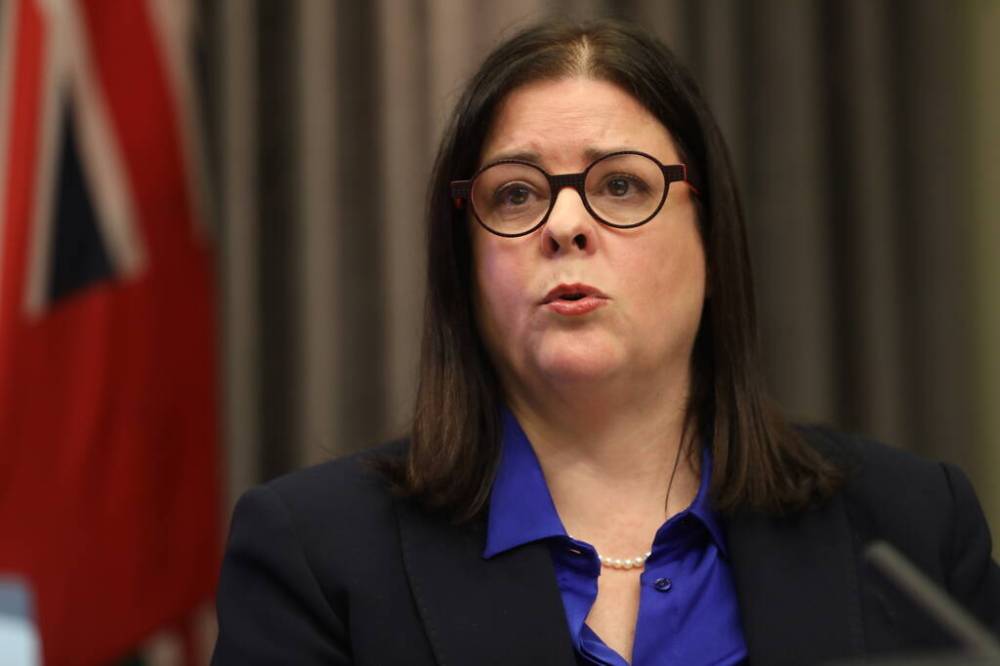
The virus is not at endemic levels yet, said Winnipeg medical microbiologist Dr. Philippe Lagacé-Wiens.
“I don’t think we’re quite ready to be calling this disease fully endemic. It’s certainly heading in that direction, but I’m not quite convinced we’re there yet,” he said.
He noted redeployed hospital staff haven’t fully returned to their positions, hospitals are still operating at surge capacity and backlogged surgeries and diagnostic tests haven’t resumed.
“There’s a lot of pressure on the hospitals, which tells me that we’re not yet in an endemic phase,” he said, adding it would be more helpful to set targets for certain scientific indicators in order to lift restrictions, rather than setting a date of March 15.
The NDP criticized the government for “pushing an artificial timeline,” as leader Wab Kinew put it Wednesday.
NDP health critic Uzoma Asagwara said it’s disappointing the government is removing the self-isolation requirement without implementing paid sick leave for all employees, without any real justification.
“The government can set that tone and be a leader in that way for Manitobans,” Asagwara said.
Intensive-care physician Dr. Eric Jacobsohn said the decision to lift certain restrictions, including the self-isolation, mask, and proof-of-vaccine requirements, puts more of a burden on front-line nurses and doctors, and on the most vulnerable, immunocompromised Manitobans, at a time when the health-care system is still overrun.
“It appears that the way these decisions are made is much more focused on individuals versus stepping back and looking at the vulnerable in society, and stepping back and saying, are we anywhere near salvaging what is an absolutely dire and distressed health-care system,” Jacobsohn said.
“It is about what’s better for the community as a whole. We all agree that the days of lockdowns and business closures are long gone, but how can we all have an open society and allow the dysfunctional health-care system to survive?”
— With files from Danielle DaSilva
katie.may@winnipegfreepress.com

Katie May is a general-assignment reporter for the Free Press.
Our newsroom depends on a growing audience of readers to power our journalism. If you are not a paid reader, please consider becoming a subscriber.
Our newsroom depends on its audience of readers to power our journalism. Thank you for your support.
History
Updated on Wednesday, March 2, 2022 6:05 PM CST: Updates earlier webbie to final version


